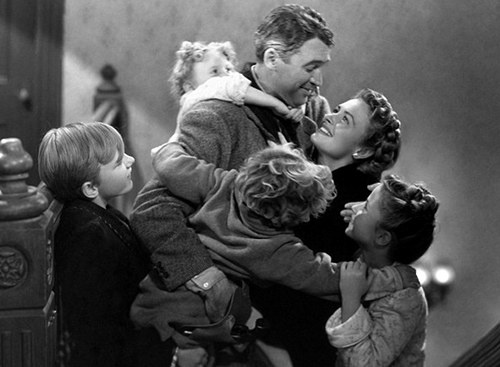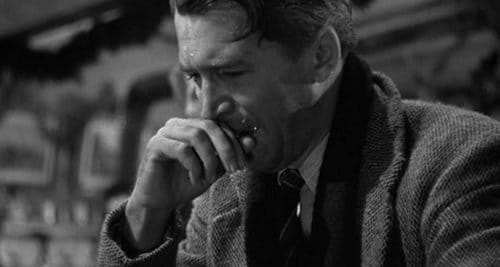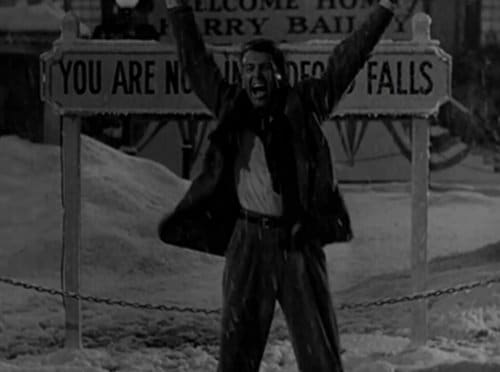
Lately, I’ve been looking at ways to be less cynical. Not that there’s anything wrong with a bit of healthy cynicism, I just have a tendency to go overboard with it so that it devolves into bitterness, pessimism, and passivity. I’m sort of morose by nature, so I’m constantly battling my inner Oscar the Grouch/Eeyore.
One thing I’ve read that’s supposed to help you overcome cynicism is starting a gratitude journal. You’ve probably heard of these things; some of you may have tried it yourself. There’s not much to it. Every day you write down the things you’re grateful for. By counting your blessings like this each day, you’re supposed to feel happier and more optimistic about life.
So they say.
I’ve done gratitude journals a few times throughout my life and I’ve never really gotten much out of the exercise. Which is really frustrating because I don’t understand why. I can flip through pages and pages of stuff that I’m thankful for and I think, “Man, I’ve got so much going for me. The world is great! Why don’t I feel any happier or less cynical about life?” On top of that, I know several folks who report that writing in a gratitude journal really helped them, so that made my failure at becoming happier through counting my blessings sting even more. I started to think that my extreme cynicism cankered my soul so much that I would never be able to feel happy or idealistic again. This of course resulted in my feeling more cynical, pessimistic, and bitter…
Damnit.
The Extraordinary Becomes Commonplace
A few months ago I was reading a book called Redirect: The Surprising New Science of Psychological Change by Dr. Timothy D. Wilson. (It’s a really good book — I highly recommend it.) One little vignette in particular really stood out to me because it addressed my old nemesis: the gratitude journal.
Psychologists have actually researched the effectiveness of gratitude journals and the results are mixed. For some people, they live up to the hype. Writing down what they’re thankful for does indeed make them happier. But psychologists also found that for many people (like myself), gratitude journals have no effect on their happiness.
Researchers blame the ineffectiveness of gratitude journals on the “pleasure paradox.” Studies show we actually experience more and prolonged joy from an event when there’s a bit of uncertainty and mystery associated with it. It’s why randomly finding a measly $5 in a street gutter can make your week, but getting a long expected $1,000 raise might just cause a shoulder shrug. Because we’ve had a couple of months to think about and understand getting the raise, we’ve grown accustomed to the idea and so we don’t get much of a rise out of it. “The extraordinary becomes commonplace,” as author Ian McEwan put it in his novel Enduring Love. And therein lies the paradox, according to Dr. Wilson: “People want to understand the good things in life so that they can experience them again, but by so doing they reduce the pleasure they get from these events.”
According to Dr. Wilson, this pleasure paradox sabotages the effectiveness of gratitude journals for some folks because “people typically spend a lot of time thinking about the good things that have happened to them, and thus by the time they sit down to write about these events they have already achieved an understanding of them and robbed them of some of their mystery.”
So my inability to feel happier from my gratitude journal(s) isn’t because I’m a heartless Scrooge. I have become so adapted to having the things I’m grateful for that they no longer hold any uncertainty in my psyche, and according to research, uncertainty is the very thing that makes events and blessings in our lives more joyful and pleasurable.
Okay. Now I understand why gratitude journals don’t work, but is there anything I can do to feel more grateful for the things in my life, and as a consequence, a bit less cynical?
Thankfully, yes. There’s a simple trick to get around the pleasure paradox so you can feel happier and less discouraged about life, and more grateful for the people and things you have. Psychologists call it “The George Bailey Technique.â€
A World Without George Bailey

“You’ve been given a great gift, George: A chance to see what the world would be like without you.” – Clarence Odbody, Angel Second Class
Yeah, that George Bailey from the classic Christmas movie It’s a Wonderful Life. George Bailey, if you recall, is a salt-of-the-earth kind of guy who constantly has his dreams thwarted because he’s always looking out for his friends and family. Ever since George was knee high to a grasshopper, he wanted to travel to exotic locales and build big things like skyscrapers and airstrips. Just when it seems he’s about to get started on making his dreams come true, some crisis happens that causes him to put them on the back burner so he can take care of other people.
Things come to a head one Christmas Eve when George’s absent-minded uncle misplaces $8,000 of the Building and Loan’s cash funds. Losing the money would mean bankruptcy for the Bailey Building and Loan and criminal charges for George. At the end of his rope, George decides to commit suicide so his family can cash his $15,000 life insurance policy and pay off the $8,000 debt.
Just before George leaps from a bridge to his icy, watery death, his guardian angel, Clarence Odbody, jumps into the river and pretends he’s drowning. George, being the big-hearted guy that he is, saves Clarence. While they’re drying off, Clarence tries to talk George out of killing himself. When George bitterly wishes that he’d never been born, Clarence sees a way to convince him not to commit suicide. Through angelic powers, Clarence is able to show him what his family and Bedford Falls would have been like if George Bailey had never existed.
It’s a hell hole.
George’s younger brother dies because George wasn’t there to save him, quaint Bedford Falls turns into sleazy Pottersville, his mother is a bitter widow, and people are living in slum apartments instead of the nice homes George’s Building and Loan funded. Worst of all, George’s wife is an old maid and none of their beautiful kids exist.
As you can guess, George sees the light and begs to live again. His wish granted, he runs joyously through the streets yelling “Merry Christmas!” to everybody. He arrives home to find the authorities with a warrant in hand for his arrest, but George doesn’t care. He’s just happy to hold and kiss his kids. His wife comes in shortly after, followed by what seems like the entire town. The townsfolk all donate enough money to save George and the Building and Loan, George’s old childhood friend Sam Wainwright (hee haw!) lends George $25,000, and George’s war hero brother arrives to declare George “the richest man in Bedford Falls.”
Among the giant pile of cash, George finds a copy of Tom Sawyer that Clarence carried around with this inscription: “Dear George: Remember no man is a failure who has friends. P.S. Thanks for the wings! Love, Clarence.”
It’s at this moment that George realizes what a wonderful life he really has. By seeing what the world would be like without him, he comes to a greater understanding and appreciation for the true richness of his blessings.
The George Bailey Technique in the Real World

In It’s a Wonderful Life, George Bailey experiences what the ancient Greeks called anagnorisis: the sudden realization of truth — of where things really stand and one’s true relationship to others. A few curious psychologists wondered if real people could experience the same kind of anagnorisis that George Bailey did when he saw a world in which he didn’t exist. So they did some experiments.
In one experiment, researchers formed two randomly selected groups of people. They asked one group to write a narrative on how they met their significant other; they asked the other group to “George Bailey†their significant other out of their lives by writing a narrative on ways in which they might not have ended up with them.
The result?
The folks who were given the George Bailey condition — writing about the ways they might not have ended up with their romantic partner — reported more happiness with their relationship than the folks who simply wrote about how they met their partner.
According to Dr. Wilson, the pleasure paradox explains the different results. The people who wrote about how they met their significant other “had undoubtedly told that story countless times, and telling it again had little impact.” But for the folks who had to imagine their wives and husbands out of their lives, the exercise “made [their relationship] seem surprising and special again, and maybe a little mysterious — the very conditions that prolong the pleasure we get from the good things in life.”
Heartened by this study, I gave the George Bailey technique a try by thinking about the ways in which I might have never met Kate and what life would be like if I didn’t have her in my life. You can really get lost down the rabbit hole imagining the various possibilities, but envisioning my life without Kate makes me all the more grateful for her. I tried the George Bailey technique on other stuff in my life and I’ll be darned if it didn’t make me feel great about living and a whole lot less cynical.
The George Bailey Technique in Your Life
If you’re like me and want to reduce some of the cynicism and pessimism in your life, I challenge you to give the George Bailey Technique a try. What do you have to lose except for maybe 20 minutes? Pick one person, place, or event in your life that brings you happiness and satisfaction, and write down in your journal the various ways it might not have happened. Then imagine your life without that person/place/event and write that down, too.
As you do this exercise regularly, you’ll begin to feel more grateful for the blessings in your life and more hopeful and optimistic about life in general. At least it has for me.
Here’s to a merrier and less cynical Christmas, gentlemen.


